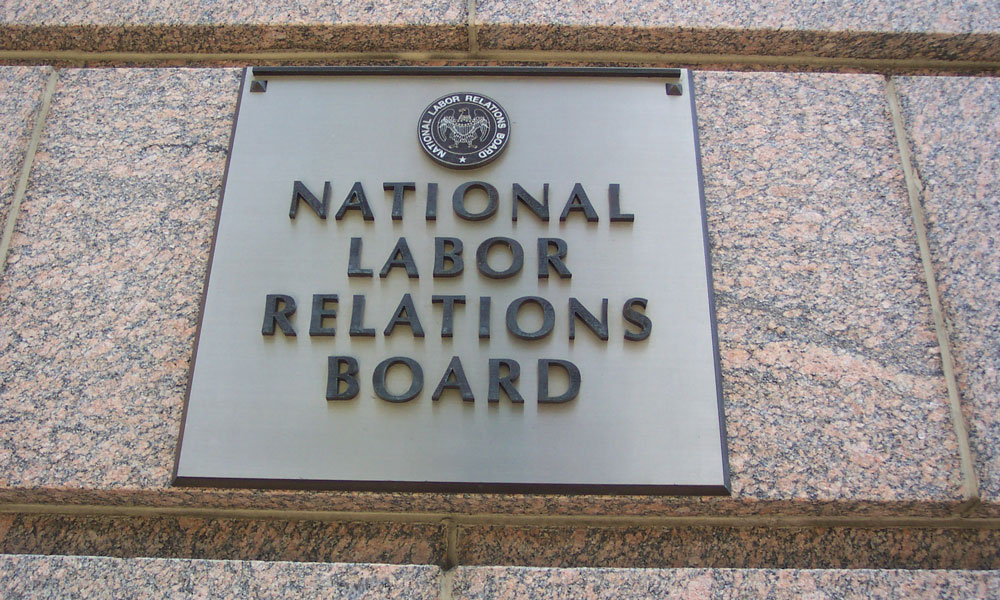
Labor Board Joint-Employer Ruling Riles Business Groups
Thursday's NLRB ruling on "joint employment" got a frosty reception from major business groups, while unions hailed the decision.
When the National Labor Relations Board (NLRB) ruled on a key joint-employer issue on Thursday, it was probably clear to anyone paying attention that the result would draw passionate reactions from those who loved it and those who hated it.
NLRB determined that Browning-Ferris Industries, a waste management company, is a joint employer with a staffing contractor that supplies workers for BFI plants. The decision [PDF] likely means that companies can be held responsible for labor violations committed by the contractors they hire. The board voted 3-2 along party lines.
Critical reaction from major trade groups in the retail, restaurant, and franchise spaces came fast and was hard to miss on Thursday afternoon.
“This is further evidence that the NLRB has given up its position as an objective arbiter of workplace issues and sees itself as an advocate for organized labor as a means of imposing new workplace obligations and legal liabilities on well-known corporations,” said David French, the National Retail Federation’s senior vice president for government relations.
“The board is overturning years of established law that has worked to help grow business and feed our economy,” argued the National Restaurant Association’s Angelo Amador, senior vice president for labor and workforce policy issues.
In finding that Browning-Ferris was a joint employer with the staffing contractor, Leadpoint, the board acknowledged that it was throwing out years of precedent. But “with more than 2.87 million of the nation’s workers employed through temporary agencies in August 2014, the board held that its previous joint-employer standard has failed to keep pace with changes in the workplace and economic circumstances,” according to a statement from the NLRB Office of Public Affairs.
“This disconnect potentially undermines the core protections of the [National Labor Relations] Act for the employees impacted by these economic changes,” the board stated.
Unions applaud Ruling
Richard Trumka, president of the AFL-CIO, echoed that theme in his response to the ruling.
“This decision may very well signal the beginning of the end of outdated laws that fail to address an economic structure tilted against working people,” he said in a statement. “It means more working people can engage in meaningful collective bargaining by bringing all parties who control their wages and other conditions of employment to the table.”
Likewise, the Teamsters—whose Local 350 chapter brought the case to the labor board—called the ruling “a victory for workers.”
“Employers will no longer be able to shift responsibility for their workers and hide behind loopholes to prevent workers from organizing or engaging in collective bargaining,” Teamsters General President Jim Hoffa said in a news release.
The International Franchise Association, saying the ruling poses a serious threat to the franchise business model, called on Congress to act when lawmakers return from their late-summer recess.
“The board’s tortured analysis will undoubtedly be met with skepticism and will be rejected by local franchise owners, legislators, and, ultimately, the courts,” IFA President and CEO Steve Caldeira said in a news release. “IFA and its allies are asking Congress to intervene to halt these out-of-control, unelected Washington bureaucrats to preserve the established joint-employer standard relied upon by America’s 780,000 franchise businesses and the 8.5 million jobs they directly create.”
The Browning-Ferris decision follows a similar one last year finding that McDonald’s Corporation is a joint employer with its franchise owners. The company has appealed that decision.
(Wikimedia Commons)






Comments